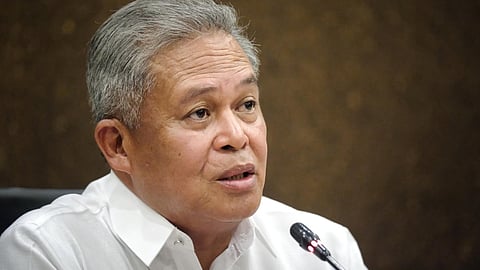
- NEWS
- the EDIT
- COMMENTARY
- BUSINESS
- LIFE
- SHOW
- ACTION
- GLOBAL GOALS
- SNAPS
- DYARYO TIRADA
- MORE

PUERTO PRINCESA, Palawan — The Bureau of Corrections (BuCor) has expressed readiness to retool and adapt if capital punishment is reinstated, acknowledging the potential impact on the country’s prison management system.
BuCor Director General Gregorio Pio Catapang, speaking on the sidelines of the 2nd Association of Southeast Asian Nations Regional Correctional Conference, emphasized that while the agency’s primary mandate remains the safekeeping and rehabilitation of persons deprived of liberty (PDLs), it is prepared to implement necessary adjustments should the death penalty return.
“The return of the death penalty will undoubtedly affect our correctional system, from prisoner classification to facility management. Regardless of the outcome, our priority remains ensuring that inmates undergo proper reformation and reintegration into society,” Catapang said.
If executions resume, logistical and infrastructural challenges will arise, as the country’s execution facility has long been decommissioned, the BuCor chief explained.
The lethal injection chamber, once the site of state executions, has since been converted into a museum, symbolizing the Philippines’ pivot away from capital punishment.
“The execution chamber is no longer operational. That is why we decided to repurpose it into a museum, serving as a reminder of the country’s history with the death penalty,” Catapang explained.
The Philippines officially abolished capital punishment in 2006 under then-President Gloria Macapagal-Arroyo.
However, in recent years, calls for its return have intensified, with proponents arguing that it serves as a strong deterrent against heinous crimes. Opponents, on the other hand, cite concerns over wrongful convictions and human rights violations.
Currently, BuCor is focused on implementing programs to decongest prison facilities, with over 55,000 inmates under its custody. If executions are reinstated, it could alter sentencing structures, prisoner populations, and resource allocation.
Catapang noted that BuCor is prioritizing long-term solutions to overcrowding, including relocating prison facilities outside Metro Manila, enhancing rehabilitation programs, and collaborating with private and international partners for prison reforms.
“Our goal is to ensure that PDLs are not only securely detained but also given opportunities for rehabilitation. We want to equip them with skills that allow them to reintegrate into society successfully,” he added.
If capital punishment is reinstated, new legal and policy frameworks will be required, including safeguards to prevent wrongful executions.
